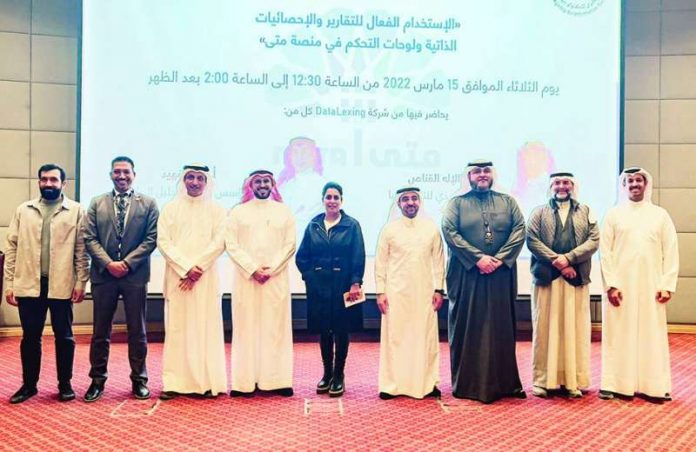Director of the Central Agency for Information Technology Haya Al-Wadani said the State of Kuwait has made great strides towards digital transformation of transactions, and Corona crisis played a major role in this transformation, in addition to the cooperation of government agencies and public awareness of the importance of using applications to organize work and appointments during the crisis through the government’s Sahel application.
On the sidelines of a workshop entitled Proactive Data Analysis, which was organized by the agency at its headquarters, Al-Wadani explained that the Mata platform booked 5 million appointments since its launch until March 15, and 963,000 people used it to benefit from 2,213 active services for 45 government agencies, pointing out that the highest appointment booking since the launch of the platform on June 5, 2020 was on February 13 of this year, with 26,141 appointment requests booked.
Al-Wadani stated the platform was integrated into the Sahel application, so that the organizers could benefit from its services in organizing appointments and educating people with the documents required to complete the transactions before going to the concerned department, and this helped reduce the congestion and save time and effort.
In turn, Saudi specialists in the field of data analysis who participated in the workshop praised the level of development in government digital products and the efforts of government agencies in the State of Kuwait, especially during the Corona pandemic, as they considered that projects such as the unified government application of electronic services Sahel and the Mata platform, the centralization of government appointments and the application of digital My Identity are important points in the digital transformation process, and provides an important amount of data and information in terms of quantity and quality that can be used in decision-making by leaders.
The founder and head of data analysis at Datalexing, which specializes in processing and analyzing information and data, Ryan Al-Fuhaid, talked about how to work proactively, analyze and highlight information in order to reach quick decisions, in addition to the importance of presenting it in a simplified manner in order to develop the users’ experience and the extent to which these methods can be used through the unified government application of services.

















